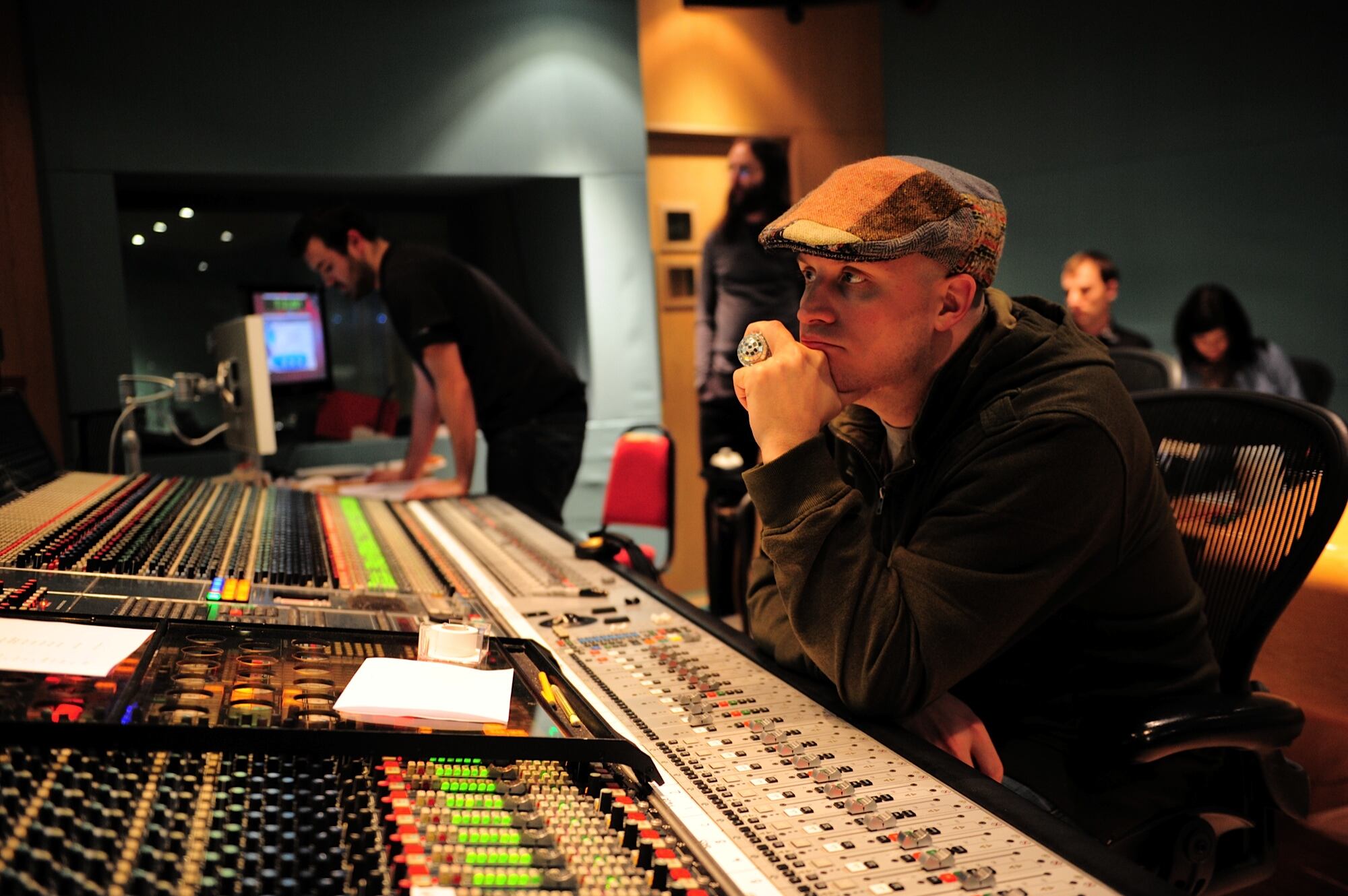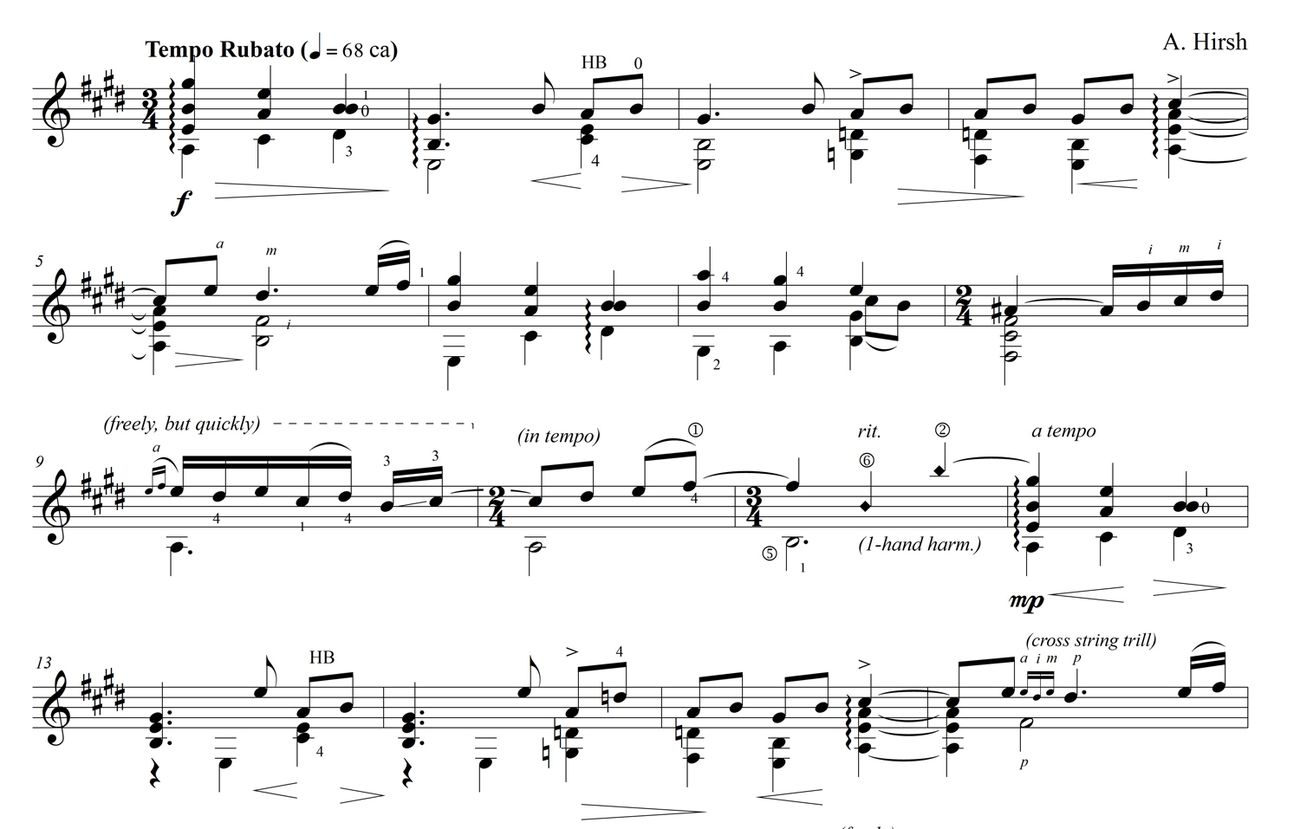Home>Production & Technology>Producer>What Does A Producer Mean In Music


Producer
What Does A Producer Mean In Music
Published: March 6, 2024
Learn what a music producer does and the important role they play in the music industry. Discover the responsibilities and skills of a producer. Find out more about the producer's impact on music creation.
(Many of the links in this article redirect to a specific reviewed product. Your purchase of these products through affiliate links helps to generate commission for AudioLover.com, at no extra cost. Learn more)
Table of Contents
Introduction
In the dynamic world of music creation, the role of a producer is paramount. A music producer is a multifaceted professional who plays a pivotal role in the development and production of a song or album. They are the masterminds behind the scenes, working tirelessly to sculpt the sonic landscape and bring out the best in artists and their music. From guiding the creative process to overseeing technical aspects, the producer's influence is felt in every note and beat.
The producer's impact extends far beyond the recording studio, shaping the trajectory of an artist's career and contributing to the evolution of musical genres. With their keen ear for sound and an innate understanding of the industry, producers serve as catalysts for innovation and creativity.
As we delve into the world of music production, it becomes evident that the role of a producer is as diverse as the melodies they help create. From shaping the sonic identity of a track to fostering collaboration among musicians, producers are the architects of sonic experiences. Understanding the nuances of this multifaceted role is essential for appreciating the artistry and craftsmanship that goes into every musical masterpiece.
The Role of a Music Producer
At the heart of the music production process lies the pivotal role of a music producer. A music producer is akin to a visionary architect, responsible for shaping the sonic landscape of a song or album. Their role extends far beyond technical expertise; they are the creative catalysts who guide artists through the intricate journey of music creation.
The producer's primary responsibility is to understand and actualize the artist's vision. This involves collaborating closely with musicians to conceptualize the sound, arrangement, and overall direction of a piece. Whether it's capturing the raw emotion of a live performance or meticulously crafting a polished studio recording, the producer's keen ear for detail and sonic aesthetics is indispensable.
In addition to nurturing the artistic vision, producers also serve as mentors and collaborators, offering invaluable guidance to artists. They provide constructive feedback, help refine musical ideas, and facilitate a conducive environment for creativity to flourish. This collaborative dynamic fosters a synergy that elevates the music to new heights, often transcending the initial vision to achieve something truly remarkable.
Furthermore, a music producer is adept at utilizing a wide array of technical tools and resources to bring the artistic vision to life. From selecting the right studio and recording equipment to overseeing the mixing and mastering process, producers ensure that the sonic quality meets the highest standards. Their technical proficiency, combined with a deep understanding of musical genres and trends, enables them to tailor the production to resonate with the target audience.
Beyond the creative and technical realms, music producers also play a pivotal role in the business aspects of music production. They oversee budgeting, scheduling, and resource management, ensuring a seamless and efficient production process. Additionally, producers often leverage their industry connections and expertise to facilitate opportunities for artists, from securing collaborations to navigating the complex landscape of music distribution and promotion.
In essence, the role of a music producer is multifaceted, encompassing creative, technical, and business aspects. Their ability to harmonize these facets, while nurturing artistic expression, makes them indispensable in the music industry. A skilled producer not only brings out the best in artists but also contributes significantly to the sonic tapestry of the musical world.
Skills and Responsibilities
A music producer embodies a diverse skill set and shoulders a wide array of responsibilities that are integral to the music production process. Their proficiency in these areas is crucial in shaping the sonic identity of a song or album and ensuring a seamless production journey.
Musical Proficiency
A music producer must possess a deep understanding of music theory, composition, and arrangement. This knowledge allows them to collaborate effectively with artists, provide insightful musical direction, and contribute creatively to the production process. Their ability to interpret and enhance the musical elements within a composition is fundamental to achieving a cohesive and compelling sonic narrative.
Technical Expertise
Proficiency in audio engineering, sound design, and studio technology is a cornerstone of a music producer's skill set. From operating recording equipment to implementing advanced production techniques, their technical prowess enables them to capture and manipulate sound with precision. This proficiency extends to mixing and mastering, where they meticulously refine the sonic nuances to achieve optimal audio quality.
Communication and Collaboration
Effective communication and collaboration skills are paramount for a music producer. They must adeptly convey their creative vision, provide constructive feedback, and facilitate a harmonious working environment for artists and fellow production team members. The ability to foster a collaborative spirit and translate creative ideas into tangible musical expressions is central to the producer's role.
Business Acumen
In addition to their creative and technical acumen, music producers are often tasked with managing budgets, negotiating contracts, and overseeing project timelines. Their ability to navigate the business aspects of music production, including licensing, royalties, and distribution, is instrumental in ensuring the commercial viability and success of a project.
Adaptability and Innovation
The dynamic nature of the music industry demands adaptability and innovation from producers. They must stay abreast of emerging technologies, production trends, and market dynamics to infuse fresh perspectives into their work. Embracing innovation while honoring artistic integrity allows producers to push creative boundaries and contribute to the evolution of musical expression.
Leadership and Decision-Making
Music producers often assume leadership roles, guiding the production process and making critical decisions that shape the final output. Their ability to inspire, motivate, and make informed decisions under pressure is pivotal in steering the creative journey and realizing the artistic vision.
In essence, the multifaceted role of a music producer demands a diverse skill set, encompassing musical, technical, interpersonal, and business competencies. Their responsibilities extend beyond the studio, encompassing artistic stewardship, technical precision, and business acumen, making them indispensable architects of the musical landscape.
Types of Producers
The realm of music production encompasses a diverse spectrum of roles, each contributing distinct expertise and creative input to the production process. Understanding the various types of producers sheds light on the nuanced dynamics that shape the creation of music. Here are the key types of producers within the music industry:
-
Record Producer:
The record producer holds a central role in overseeing the entire production process, from pre-production to the final mastering stage. They collaborate closely with artists to actualize their creative vision, manage studio sessions, and provide valuable input on arrangements, instrumentation, and overall sound aesthetics. Record producers are instrumental in shaping the sonic identity of an album and often work across diverse musical genres, demonstrating adaptability and a keen understanding of artistic nuances. -
Beatmaker/Producer:
Beatmakers, also known as producers in the hip-hop and electronic music realms, specialize in creating instrumental tracks and beats. Their expertise lies in crafting compelling rhythms, melodies, and sonic textures that form the foundation of a song. Beatmakers often collaborate with lyricists and vocalists, infusing their productions with innovative sounds and rhythmic elements that define contemporary music genres. -
Mixing Engineer/Producer:
The mixing engineer, often referred to as a mixing producer, is responsible for blending and refining individual tracks within a song to achieve a cohesive and balanced sonic mix. Their technical prowess in audio engineering, sound manipulation, and spatial dynamics is pivotal in shaping the overall sonic landscape of a composition. Mixing producers meticulously sculpt the tonal and spatial elements of a song, ensuring that each instrument and vocal track harmoniously coalesce into a captivating sonic tapestry. -
Executive Producer:
The executive producer plays a strategic and managerial role in overseeing the entire production process. They are often involved in the business aspects of music production, including budgeting, resource allocation, and project management. Executive producers leverage their industry connections and expertise to facilitate collaborations, secure studio resources, and navigate the commercial landscape of music distribution and promotion. -
Film/TV/Video Game Producer:
In the realm of audio-visual media, producers play a crucial role in curating and creating music for films, television shows, and video games. These producers collaborate closely with directors, composers, and sound designers to synchronize music with visual narratives, evoke emotions, and enhance storytelling through soundscapes. Their ability to weave music seamlessly into visual media demonstrates a nuanced understanding of narrative and emotional resonance.
Understanding the diverse roles of producers within the music industry underscores the collaborative and multifaceted nature of music production. Each type of producer contributes distinct expertise and creative input, shaping the sonic landscape and contributing to the rich tapestry of musical expression.
The Producer's Impact on the Music Industry
The influence of music producers reverberates throughout the music industry, transcending the confines of recording studios and resonating across global airwaves. Their impact is multifaceted, shaping the sonic landscape, nurturing talent, and catalyzing innovation within the industry.
Shaping Sonic Identity
Music producers play a pivotal role in shaping the sonic identity of artists and genres. Their creative vision and technical expertise are instrumental in sculpting the soundscapes that define musical compositions. Whether it's infusing a track with evocative textures, refining the nuances of a vocal performance, or orchestrating intricate sonic arrangements, producers leave an indelible imprint on the sonic fabric of music. Their ability to capture raw emotions, elevate musical performances, and craft immersive sonic experiences contributes to the diversity and richness of musical expression.
Nurturing Artistic Talent
Producers serve as mentors and collaborators, nurturing the artistic growth of musicians and vocalists. Their guidance extends beyond technical production aspects, encompassing creative direction, performance refinement, and artistic development. By providing constructive feedback, fostering a supportive creative environment, and encouraging experimentation, producers empower artists to explore their creative potential and push the boundaries of musical innovation. This mentorship not only elevates individual artists but also contributes to the evolution of musical genres and the discovery of new talent.
Catalyzing Innovation
The dynamic nature of the music industry demands continual innovation, and producers are at the forefront of driving creative evolution. Their ability to embrace emerging technologies, experiment with novel production techniques, and fuse diverse musical influences fuels innovation within the industry. Producers often serve as catalysts for genre-blurring collaborations, sonic experimentation, and the reinterpretation of musical traditions. By pushing creative boundaries and challenging conventions, producers contribute to the ever-evolving tapestry of musical styles and trends.
Commercial Viability and Market Trends
Beyond artistic endeavors, music producers play a crucial role in navigating the commercial landscape of the music industry. Their understanding of market trends, audience preferences, and industry dynamics influences production decisions, from genre crossovers to sonic aesthetics tailored for specific demographics. Producers leverage their insights to optimize the commercial viability of musical projects, ensuring that artistic integrity harmonizes with market appeal. This delicate balance between artistic innovation and commercial viability is a testament to the producer's impact on the broader music industry.
Collaborative Networks and Industry Influence
Music producers often cultivate extensive collaborative networks, working with a diverse array of artists, songwriters, and industry professionals. These collaborations not only enrich the creative tapestry of music but also contribute to the interconnectedness of the industry. Producers leverage their influence to facilitate collaborations, amplify emerging voices, and shape industry trends. Their ability to recognize and elevate promising talent, forge synergistic partnerships, and champion diverse musical expressions underscores their enduring impact on the music industry's cultural and creative landscape.
In essence, the producer's impact on the music industry is profound and multifaceted, encompassing artistic, commercial, and cultural dimensions. Their contributions resonate across genres, generations, and global audiences, shaping the ever-evolving narrative of musical expression and innovation. From nurturing talent to shaping sonic identities, producers are instrumental architects of the musical world, leaving an enduring legacy that transcends time and trends.
Conclusion
In the intricate tapestry of music creation, the role of a producer emerges as a cornerstone of artistic innovation and sonic craftsmanship. The multifaceted nature of a music producer's responsibilities, encompassing creative, technical, and business acumen, underscores their indispensable role in shaping the sonic narratives that resonate with audiences worldwide.
From nurturing artistic talent to catalyzing industry-wide innovation, producers wield a profound influence that transcends the confines of recording studios and reverberates across the global music landscape. Their ability to harmonize artistic vision with technical precision, navigate market dynamics, and foster collaborative networks underscores their enduring impact on the music industry's cultural and creative evolution.
As architects of sonic experiences, producers leave an indelible imprint on the musical world, shaping the sonic identities of artists, genres, and generations. Their mentorship, guidance, and collaborative spirit not only elevate individual artists but also contribute to the evolution of musical genres, pushing the boundaries of creative expression.
The diverse types of producers within the industry, from record producers to beatmakers and executive producers, exemplify the collaborative and multifaceted nature of music production. Each type of producer contributes distinct expertise and creative input, enriching the sonic tapestry and fostering a dynamic landscape of musical expression.
In essence, the role of a music producer transcends mere technical proficiency; it embodies a profound commitment to artistic stewardship, creative collaboration, and industry innovation. The enduring legacy of producers is woven into the fabric of musical history, resonating with the timeless melodies and innovative sounds that define the ever-evolving narrative of musical expression.
As we navigate the dynamic currents of the music industry, the influence of producers remains steadfast, guiding the artistic journey, shaping sonic landscapes, and contributing to the rich tapestry of musical expression. Their enduring impact underscores the pivotal role of producers as architects of sonic innovation and custodians of artistic evolution within the vibrant and ever-changing world of music.











